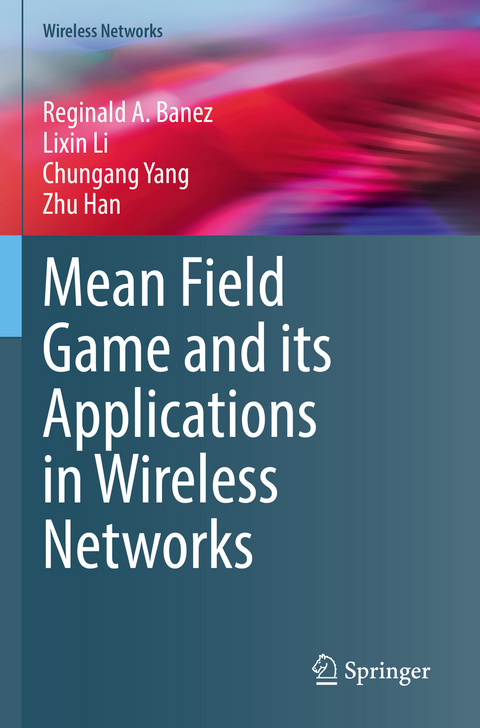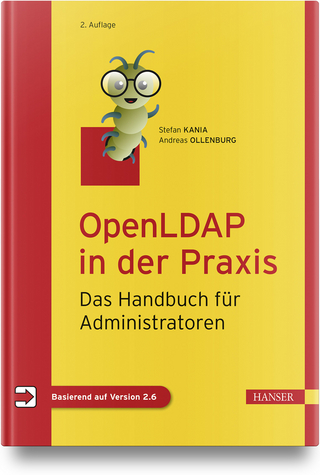
Mean Field Game and its Applications in Wireless Networks
Springer International Publishing (Verlag)
978-3-030-86907-6 (ISBN)
Applications of MFG covered in this book are divided in three parts. The first part covers three single-population MFG research works or case studies in UDNs including ultra-dense D2D networks, ultra-dense UAV networks, and dense-user MECNs. The second part centers on a multiple-population MFG (MPMFG) modeling of belief and opinion evolution in social networks. It focuses on a recently developed MPMFG framework and its application in analyzing the behavior of users in a multiple-population social network. Finally, the last part concentrates on an MFTG approach to computation offloading in MECN. The computation offloading algorithms are designed for energy- and time-efficient offloading of computation-intensive tasks in an MECN.
This book targets advanced-level students, professors, researchers, scientists, and engineers in the fields of communications and networks. Industry managers and government employees working in these same fields will also find this book useful.
Zhu Han received the B.S. degree in electronic engineering from Tsinghua University, in 1997, and the M.S. and Ph.D. degrees in electrical and computer engineering from the University of Maryland, College Park, in 1999 and 2003, respectively. Currently, he is a John and Rebecca Moores Professor in the Electrical and Computer Engineering Department as well as in the Computer Science Department at the University of Houston, Texas. Dr. Han was an IEEE Communications Society Distinguished Lecturer from 2015-2018, IEEE Fellow since 2014, AAAS fellow since 2019 and ACM distinguished Member since 2019. Dr. Han is 1% highly cited researcher since 2017 according to Web of Science. Dr. Han is also the winner of 2021 IEEE Kiyo Tomiyasu Award, for outstanding early to mid-career contributions to technologies holding the promise of innovative applications, with the following citation: ``for contributions to game theory and distributed management of autonomous communication networks Reginald A. Banez received the B.S. degree in Electronics and Communications Engineering from the Mapúa University, Manila, Philippines, in 2008, and the Master’s and Ph.D. degrees in Electrical Engineering from the University of Houston, Texas, USA, in 2015 and 2020, respectively. He was a recipient of the UH Cullen College of Engineering Graduate Tuition Fellowship from 2017 to 2020. He was a post-doctoral researcher with the Department of Electrical and Computer Engineering at the University of Houston from 2020 to 2021. His research interests include communication networks, mean field games, and machine learning. Lixin Li received the B.S., the M.S. and the Ph.D. degrees from Northwestern Polytechnical University (NPU), Xi’an, China, in 2001, 2004, and 2008, respectively. He was a Postdoctoral Fellow with NPU from 2009 to 2011. In 2017, He was a Visiting Scholar with the University of Houston, Texas. He is currently an Associate Professor with the School of Electronics and Information, NPU. He has authored or coauthored more than 150 peer-reviewed papers in many prestigious journals and conferences, and he holds 20 patents. His current research interests include wireless communications, game theory, and machine learning. He was an exemplary reviewer for IEEE Transactions on Communications in 2020. Chungang Yang is a full professor at Xidian University, where he leads the research team of "GUIDE, Game, Utility, artificial Intelligent Design for Emerging communications". He received his Bachelor and Doctoral Degree in Xidian University, Xi'an, China, in 2006 and 2011, respectively. Between Sep. 2010 and March 2011, he held the visiting scholar position in the department of electrical and computer engineering at Michigan Technological University (MTU). Between March 2015 and March 2016, he held the visiting scholar position in the department of electrical and computer engineering at University of Houston (UH).Dr. Yang's research interests include resource and interference management and network optimization for cognitive radio networks, heterogeneous green cellular networks, with focus on game theory for wireless communication and computing networks. He has edited two books, and published 30+ journals and 30+ conferences. Dr. Yang's recent research interests are artificial intelligent B5G/6G wireless mobile networks, intent-driven/based networks (IDN/IBN), and space-terrestrial networks (STN), and so on.
1. Overview of Mean Field Games in Wireless Networks.- 2. Introduction to Mean Field Games and Mean-Field-Type Games.- 3. A Survey of Mean Field Game Applications in Wireless Networks.- 4. Mean Field Game Applications in Ultra-Dense 5G, 6G, and Beyond Wireless Networks.- 5. Multiple-Population Mean Field Game for Social Networks.- 6. Mean-Field-Type Game for Multi-Access Edge Computing Networks.
"In this handbook, the authors provide a guide for researchers who want to use the tools of mean field games to study the future development of wireless networks. ... the authors do provide a basic overview of those topics that might suffice for an ambitious newcomer. ... It also offers a gateway for game theorists looking for the necessary institutional background to apply their tools to relevant research questions in wireless networks." (Thomas Wiseman, zbMATH 1493.91001, 2022)
“In this handbook, the authors provide a guide for researchers who want to use the tools of mean field games to study the future development of wireless networks. … the authors do provide a basic overview of those topics that might suffice for an ambitious newcomer. … It also offers a gateway for game theorists looking for the necessary institutional background to apply their tools to relevant research questions in wireless networks.” (Thomas Wiseman, zbMATH 1493.91001, 2022)
| Erscheinungsdatum | 02.11.2022 |
|---|---|
| Reihe/Serie | Wireless Networks |
| Zusatzinfo | X, 178 p. 31 illus., 30 illus. in color. |
| Verlagsort | Cham |
| Sprache | englisch |
| Maße | 155 x 235 mm |
| Gewicht | 296 g |
| Themenwelt | Mathematik / Informatik ► Informatik ► Netzwerke |
| Technik ► Nachrichtentechnik | |
| Schlagworte | 5G/6G Networks • belief and opinion evolution • computation offloading • cooperative MFTG • Device-to-device communications • direct method MFTG • Game Theory • mean field games • mean field Stackelberg game • mean-field-type games • multi-access edge computing networks • multiple-population MFG • non-cooperative MFTG • numerical MFG • social evolution dataset • Social Networks • UAV Networks • ultra-dense networks • User behavior modeling • wireless networks |
| ISBN-10 | 3-030-86907-5 / 3030869075 |
| ISBN-13 | 978-3-030-86907-6 / 9783030869076 |
| Zustand | Neuware |
| Informationen gemäß Produktsicherheitsverordnung (GPSR) | |
| Haben Sie eine Frage zum Produkt? |
aus dem Bereich


